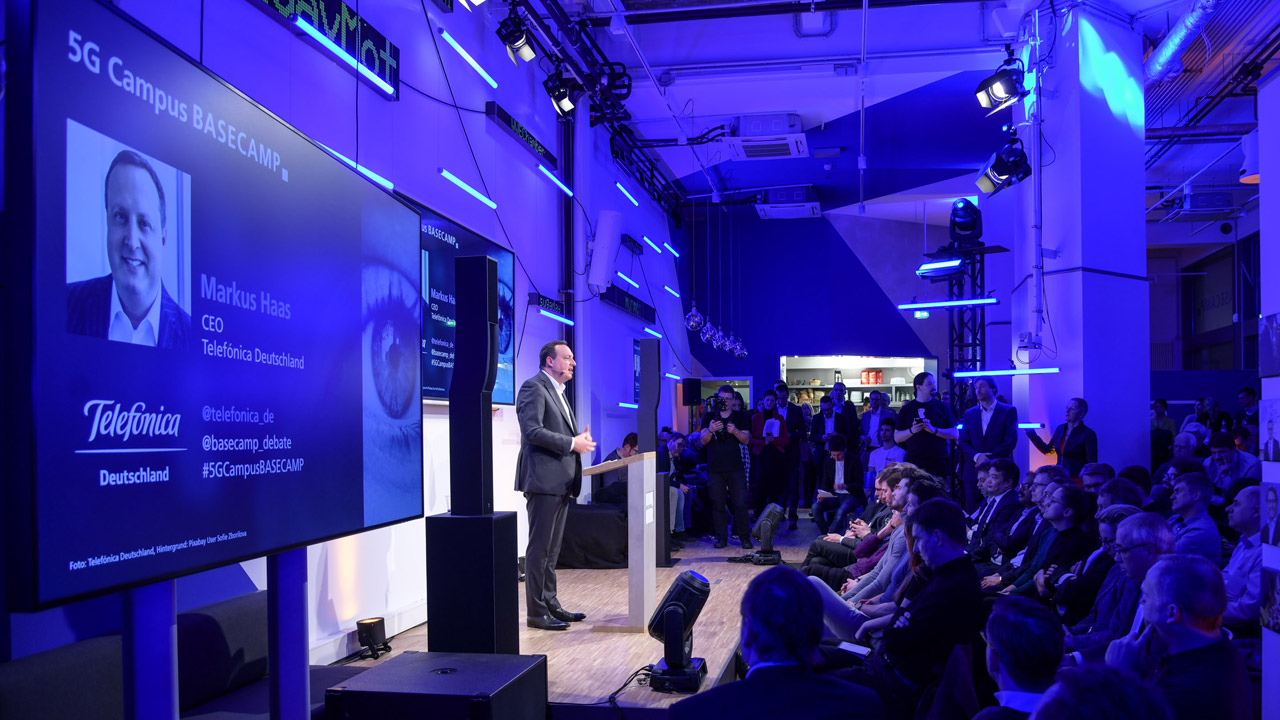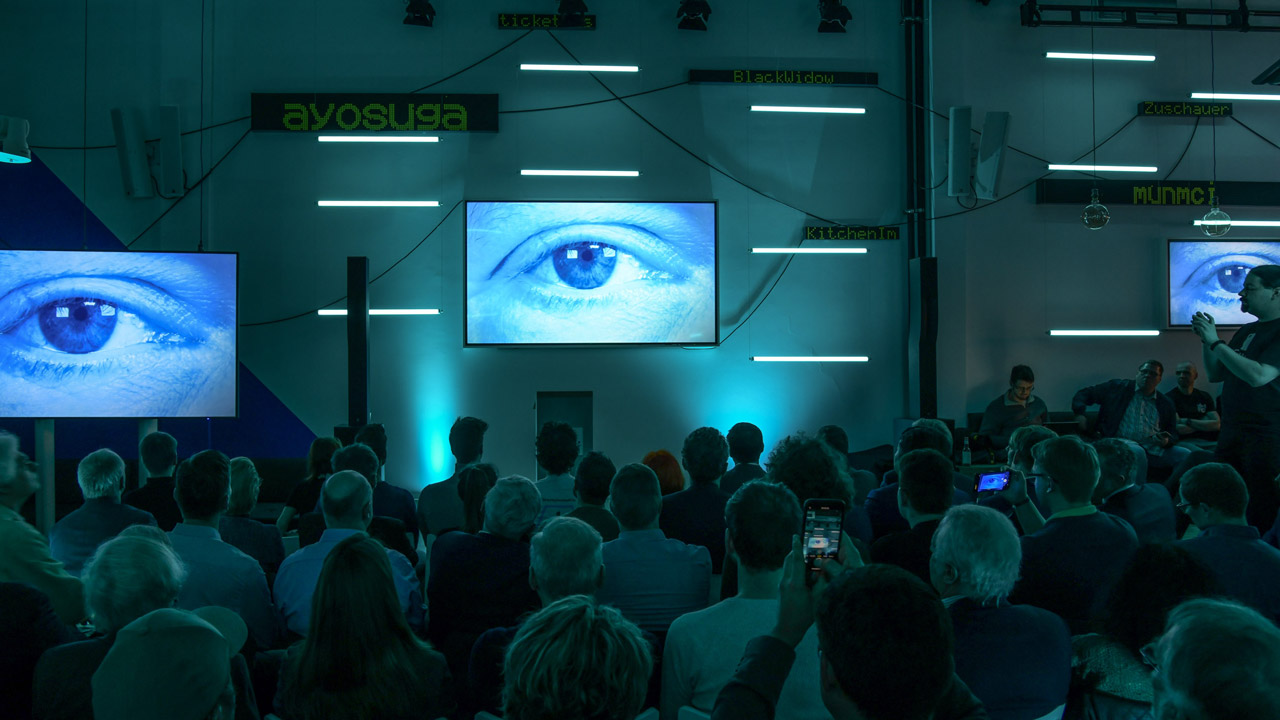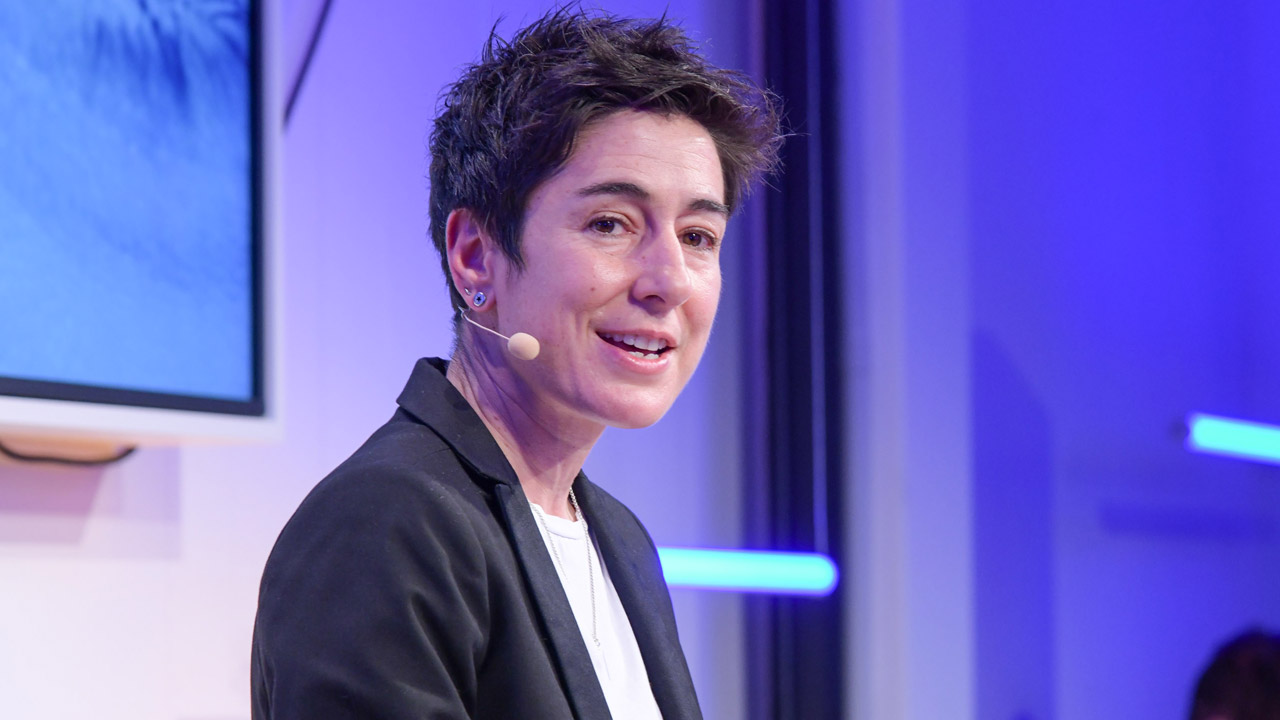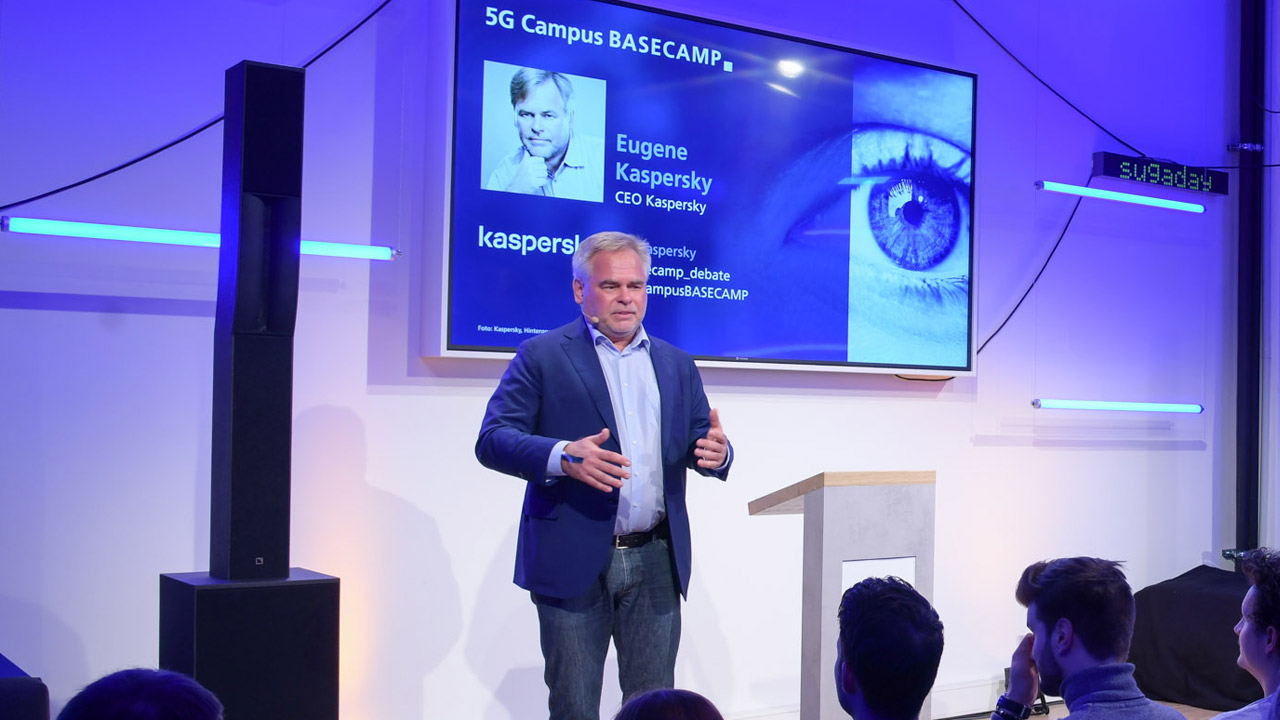10.03.2020
5G campus in Berlin BASECAMP:Telefónica Deutschland invites the public to try out 5G

Markus Haas
5G you can touch - this is what Telefónica Deutschland is now offering at BASECAMP in the middle of Berlin. The first 5G indoor campus solution in the capital city enables all interested parties to try out the new wireless technology. In addition, the company will be promoting the exchange of information on the key topics relating to 5G at BASECAMP. The official opening ceremony with Telefónica CEO Markus Haas, Eugene Kaspersky, CEO Kaspersky, the President of the Federal Office for Information Security Arne Schönbohm and moderator and journalist Dunja Hayali marked the start of the event.
"It is in keeping with our self-image to open up the digital possibilities to all people. That is why I am proud that we are deliberately presenting our 5G campus network to the general public and enabling politicians, business representatives, founders and consumers to experience 5G," said Markus Haas, CEO of Telefónica Deutschland in his welcoming address to the numerous guests. Haas is not only interested in the technology of the 5G network, which will continue to develop. He is particularly interested in the exchange of experiences regarding 5G and the opportunities that will be offered in the future. The BASECAMP as a central debate room, co-working space, O2 shop and café is now also the 5G Campus of Telefónica and its core brand O2.
"Nothing will change our world today as much as 5G," emphasised Haas. "5G not only brings great opportunities for the German economy. 5G is the basis for future growth and prosperity." More and more machines and software systems would be able to communicate with each other without noticeable delay. This would enable factories to achieve a whole new flexibility in their production and increase efficiency. Together with Ericsson, Telefónica Germany has already set up a modern 5G campus network for Mercedes Benz vehicles in factory 56. "Industry demand for 5G campus solutions is growing." In addition, 5G will enable ground-breaking new applications, opening up entirely new business opportunities.
5G is changing everyday life more than any other mobile phone technology before

The first 5G indoor campus solution in BASECAMP
Telefónica Deutschland has launched an investment programme worth billions of euros to create the basis for these developments. This year the company is starting the 5G rollout in the five largest German cities of Berlin, Hamburg, Munich, Cologne and Frankfurt. By the end of 2022, 30 major cities with a total of 16 million people are to be supplied with 5G. Because 5G will not only change the industry. "5G will have a greater impact on our personal everyday lives than any other wireless technology to date." It's not just about being able to download entire series in seconds. 5G makes networked driving or intelligent cities possible in the first place. Haas also explained that "without 5G and the resulting new applications, we will not achieve our climate targets."
Moderator and journalist Dunja Hayali outlined the vision of a future in which technology makes everyday life easier. People would be able to move around more safely, false information would be immediately decoded as untrue, and people would communicate with each other better and more clearly, despite cultural differences and across different languages. At the same time, the moderator also posed the question: "How do we avoid losing our own judgment? And are we in danger of doing things simply because they are technically possible?" Security expert Eugene Kaspersky, CEO Kaspersky Lab, also addressed the question of responsible and secure use of technologies such as 5G. Cyber attacks would shift more and more from PCs and computers to smartphones and the Internet of Things (IoT). "We need to design and develop our systems so that they are immune to attacks," he stressed. He added that, in addition to technology, regulation is also important to protect the infrastructure. Arne Schönbohm, President of the Federal Office for Information Security (BSI), is counting on a European solution. "The aim is to guarantee the availability and security of 5G networks and thus strengthen confidence in the technology," he said. In view of the great opportunities that 5G will open up for both the economy and society, he was convinced: "We will be the driver of digitization in the future."
Innovative applications use high data rates and low latency of 5G

Dunja Hayali
The leap from theory to practice was made through various show cases. For example, a Fixed Wireless Access solution from NOKIA converted 5G into fast WLAN via a simple small box for the living room at home - a kind of "wireless DSL". A networked park bench from Strawberry Energy also translates 5G into WLAN, thereby offering consumers fast Internet access outdoors. Thanks to solar panels, the bank also supplies itself with energy independently. Samsung presented the new generation of smartphones with 5G with the Samsung Galaxy S20 Ultra 5G. Dimenco showed how users can interact with an interactive 3D screen without wearables. Simply by moving their hands and making eye contact, users can view a virtual object - for example a sneaker or an architectural model - in 3D. The StartUp FoldAI from the Telefónica Startup Incubator Wayra in turn uses sensors to collect current data in forests and cities, which foresters and urban planners can use to better predict and respond to ecological, economic and social dynamics. And the Wayra Startup BraveYourself showed the 3D Steam computer game "Game of Drones" as an example for worldwide professional drone sports with 5G.
Nokia demonstrated how short the latency times will be in the future when 5G is no longer piggybacked by 4G, but is instead based on its own 5G core network, with two applications. In a virtual table tennis game with VR glasses the players hardly hit a ball due to the delay with 4G, with 5G the game looked like a real game taking place. In an application for industrial control technology, a robot balanced a ball and reacted in real time to external disturbances. The further technical development of 5G also plays an important role for the 5G campus solution in BASECAMP. It will continuously adapt to changes and make it increasingly clear to all interested parties through testing opportunities and events what opportunities 5G offers our society.

Eugene Kaspersky
Nokia demonstrated how short the latency times will be in the future when 5G is no longer piggybacked by 4G, but is instead based on its own 5G core network, with two applications. In a virtual table tennis game with VR glasses the players hardly hit a ball due to the delay with 4G, with 5G the game looked like a real game taking place. In an application for industrial control technology, a robot balanced a ball and reacted in real time to external disturbances.
The further technical development of 5G also plays an important role for the 5G campus solution in BASECAMP. It will continuously adapt to changes and make it increasingly clear to all interested parties through testing opportunities and events what opportunities 5G offers our society.